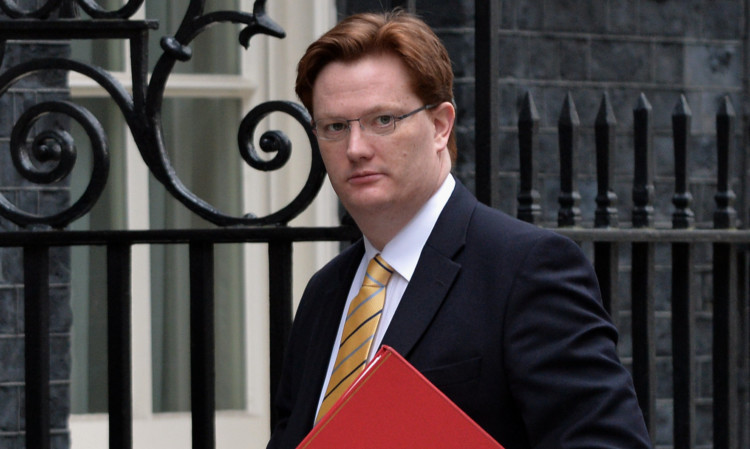
Danny Alexander has claimed sweeping changes to the pension system announced last week will work out fine because “intuition” tells him so.
The Lib Dem Chief Secretary to the Treasury has admitted that the flagship pension reforms unveiled in the Budget last week are based on “gut feeling”, but has dismissed concerns that the pensions market could be pitched into turmoil by the changes.
However, he admitted the Government has done no detailed analysis, instead relying on “intuition”.
He said: “I think it will lead to more pensions savings.
“Building up a big savings pot over a lifetime and having more flexibility to choose what is best for you at retirement will give people more of a sense that it’s something that’s in their interest to do.”
But pressed on whether his view was based on Treasury projections, he said: “It’s based more on my intuition.”
In his Budget, Chancellor George Osborne scrapped rules forcing pensioners to use the pot they’ve saved up over their working lives to buy an annuity that guarantees an income in retirement.
But fears have been raised that retirees could be tempted to blow savings meant for retirement on fast cars and luxury holidays. Alternatively, they could be susceptible to cons and mis-selling leaving them with little to live on.
Alexander, the Chancellor’s Treasury No.2, admitted: “We haven’t done a detailed study of this but my gut feeling is that as well as being right in principle to liberalise, to free up, it will also have a beneficial effect on the level of pension saving in this country.
“There’s not, at this point, a detailed model of who will do what and when because it’s about individual choices.
“It’s also about what the market offers.
“People who are careful with their money and who save for their retirement, those are responsible people and the idea that the State says to those people that we trust you less in retirement than we do in the rest of your life seems, to me, to be absurd.”
How responsible it is to make what the Chancellor claimed is “the most far-reaching reform” to pensions since 1921 without projecting what the outcome might be is open to question.
Apparently Labour considered similar changes when in power but rejected them as too risky and experts are divided over whether folk will be able to resist the urge to splurge.
Alexander concedes the changes have been driven by ideology. He said: “It is a change that is rooted in the old-fashioned Liberal belief that people should be free to make their own choices in life.”
He claims that the Coalition’s introduction of a new single-tier pension makes last week’s announcement less of a risk.
Lib Dem Pensions Minister, Steve Webb, told Parliament that pensioners should be free to buy a Lamborghini if they want.
Alexander explained: “The single-tier pension means that people who retire will have a basic level of pension that lifts them above the means-testing level, so the State will provide a proper income on retirement for everybody.
“So the risk of someone leaving themselves destitute and having to fall back on extra support from the State is much reduced. The State providing a proper rate of pension for everyone that retires from 2016 onwards creates the platform on which this new freedom can be exercised.”
The pension reforms have been characterised as Thatcherite in putting people’s money in their own pockets.
Unsurprisingly, Alexander insists it was a Liberal Democrat Budget. He added: “It’s delivering the Liberal Democrat policy of cutting income tax for ordinary people, it’s delivering a liberal reform of pensions and it’s delivering support to the industries that are important in the more disadvantaged parts of the country.
“People sometimes accuse me of ‘going native’ in the Treasury. I think it must be pretty frustrating to be a Tory in the Treasury delivering so many Liberal Democrat ideas and policies.
“It’s more accurate to say some of them have gone Lib Dem native.”
And Alexander wants to stay in the Treasury even after the next General Election.
He said: “You can’t trust the Tories on their own to deliver a fair society, you can’t trust Labour on their own to deliver a strong economy. That’s why you need Lib Dems in the mix as part of Government, not just in this Parliament but in the next Parliament too.
“I’d love to be back in Government. I’d love to be Chancellor of Exchequer.”

Enjoy the convenience of having The Sunday Post delivered as a digital ePaper straight to your smartphone, tablet or computer.
Subscribe for only £5.49 a month and enjoy all the benefits of the printed paper as a digital replica.
Subscribe